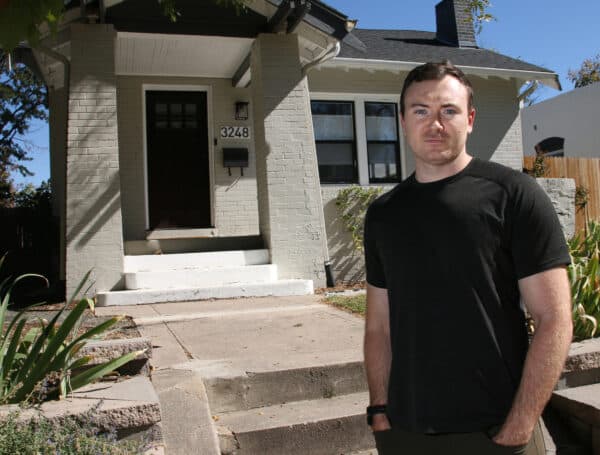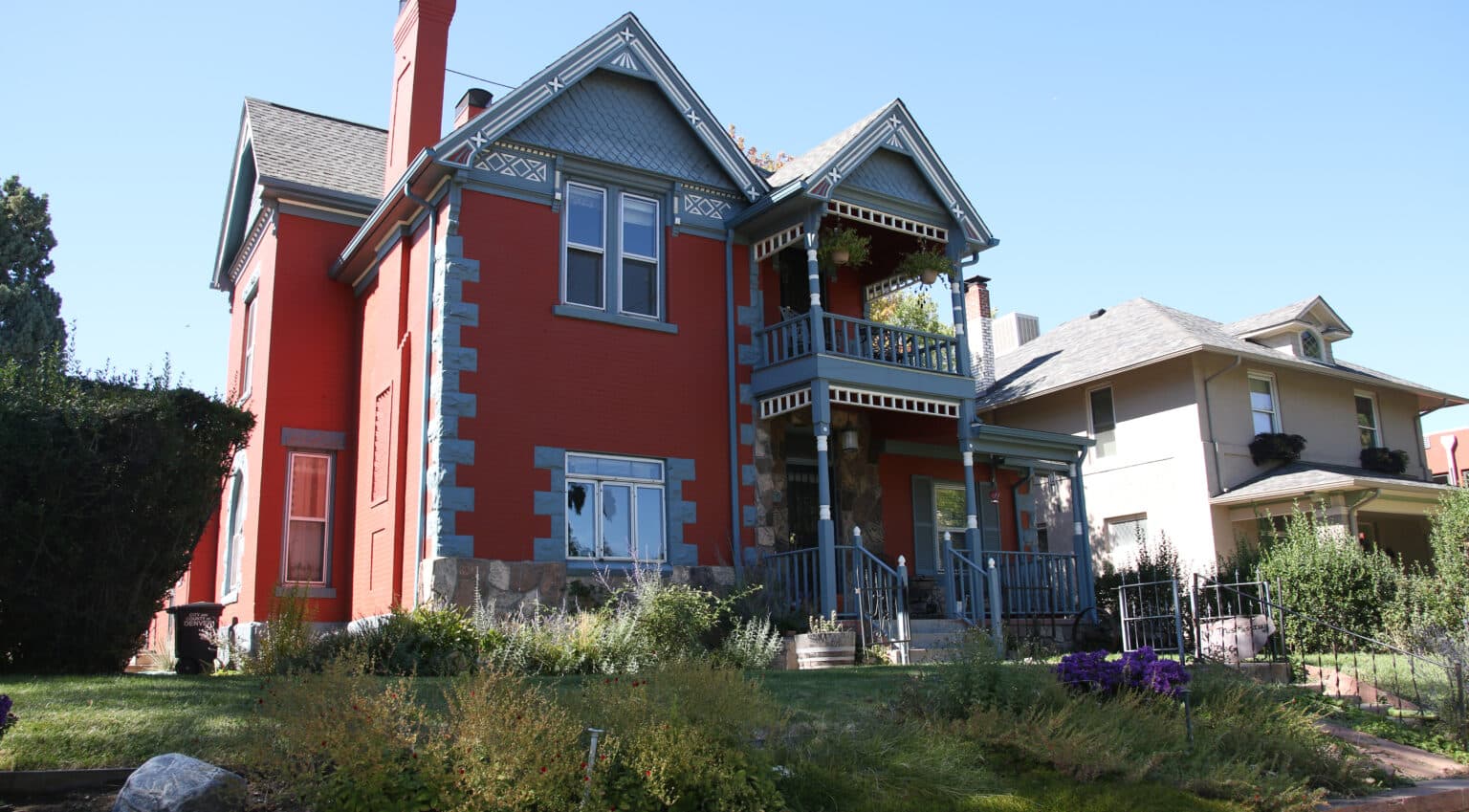After a five-year legal fight, residents in the Packard’s Hill Historic District who don’t want it to be an historic district are out of good options and giving up.
On Oct. 10, the Colorado Supreme Court declined to hear the case. That left only one other option: a dubious appeal to the U.S. Supreme Court. The residents will not try it.
“It looks like this is the end of the road,” said Jordan Porter, a Denver attorney who has represented residents Kevin O’Connell, Paul Hudgens, Carol Purdy and Dee Hayes since filing their first lawsuit challenging the historic designation in 2017.
Packard’s Hill is within the West Highland neighborhood, between 32nd Avenue and 35th Avenue south to north, and Lowell Boulevard and Perry Street east to west. It played an outsized role in the history of women’s rights in Denver, according to preservationists.
In September 2017, the City Council voted 8-5 to create the historic district. Porter filed a lawsuit on behalf of the four residents the following month. In it, he wrote that half the property owners in Packard’s Hill were opposed to the designation.
The lawsuit asked a Denver District Court judge to overturn the historic designation because, it argued, the designation was a zoning change and zoning changes that are opposed by more than 20 percent of affected residents must be approved by a supermajority of the City Council. That would mean 10, not eight, affirmative votes were necessary.
Judge Robert McGahey Jr. dismissed the case in 2018 but the Colorado Court of Appeals reversed his dismissal the following year. McGahey dismissed it again in 2020 and the Court of Appeals upheld that dismissal. It was then that Porter appealed to the Supreme Court, which declined last week to consider the case, ending the lengthy legal saga.

Tom Davich, a homeowner within the Packard’s Hill Historic District, said he has received violation notices regarding changes made to his home, which he bought in 2020.
“The city is pleased that the courts have resolved the matter in a manner that upholds the legislative process,” said Assistant City Attorney Josh Roberts, who tried the case.
Porter and the four residents filed a second lawsuit in 2021, making a different procedural argument for why the Denver City Council wrongly designated the historic district. But that lawsuit is now irrelevant and will be withdrawn, Porter said last week.
For his clients, that means onerous requirements, he says. A broken porch light can’t be fixed with a quick trip to the hardware store because city approval is needed. One client may have to replace their windows because a previous owner didn’t receive the go-ahead from the city to install them.
“You literally need government approval to do any exterior alterations to your property,” Porter said. “It smacks you in the face, just how intrusive the regulations are.”
Porter readily acknowledges that he speaks for some, not all, residents there.
“Just as this neighborhood was split 50-50 on doing this designation in the first place,” he said, “there are people who see the city’s regulations as great and other people in the neighborhood who are dealing with serious fallout from this.”
After a five-year legal fight, residents in the Packard’s Hill Historic District who don’t want it to be an historic district are out of good options and giving up.
On Oct. 10, the Colorado Supreme Court declined to hear the case. That left only one other option: a dubious appeal to the U.S. Supreme Court. The residents will not try it.
“It looks like this is the end of the road,” said Jordan Porter, a Denver attorney who has represented residents Kevin O’Connell, Paul Hudgens, Carol Purdy and Dee Hayes since filing their first lawsuit challenging the historic designation in 2017.
Packard’s Hill is within the West Highland neighborhood, between 32nd Avenue and 35th Avenue south to north, and Lowell Boulevard and Perry Street east to west. It played an outsized role in the history of women’s rights in Denver, according to preservationists.
In September 2017, the City Council voted 8-5 to create the historic district. Porter filed a lawsuit on behalf of the four residents the following month. In it, he wrote that half the property owners in Packard’s Hill were opposed to the designation.
The lawsuit asked a Denver District Court judge to overturn the historic designation because, it argued, the designation was a zoning change and zoning changes that are opposed by more than 20 percent of affected residents must be approved by a supermajority of the City Council. That would mean 10, not eight, affirmative votes were necessary.
Judge Robert McGahey Jr. dismissed the case in 2018 but the Colorado Court of Appeals reversed his dismissal the following year. McGahey dismissed it again in 2020 and the Court of Appeals upheld that dismissal. It was then that Porter appealed to the Supreme Court, which declined last week to consider the case, ending the lengthy legal saga.

Tom Davich, a homeowner within the Packard’s Hill Historic District, said he has received violation notices regarding changes made to his home, which he bought in 2020.
“The city is pleased that the courts have resolved the matter in a manner that upholds the legislative process,” said Assistant City Attorney Josh Roberts, who tried the case.
Porter and the four residents filed a second lawsuit in 2021, making a different procedural argument for why the Denver City Council wrongly designated the historic district. But that lawsuit is now irrelevant and will be withdrawn, Porter said last week.
For his clients, that means onerous requirements, he says. A broken porch light can’t be fixed with a quick trip to the hardware store because city approval is needed. One client may have to replace their windows because a previous owner didn’t receive the go-ahead from the city to install them.
“You literally need government approval to do any exterior alterations to your property,” Porter said. “It smacks you in the face, just how intrusive the regulations are.”
Porter readily acknowledges that he speaks for some, not all, residents there.
“Just as this neighborhood was split 50-50 on doing this designation in the first place,” he said, “there are people who see the city’s regulations as great and other people in the neighborhood who are dealing with serious fallout from this.”

